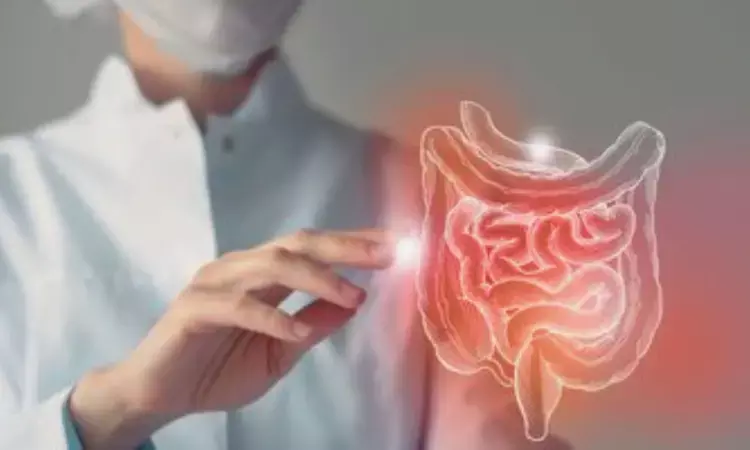- Home
- Medical news & Guidelines
- Anesthesiology
- Cardiology and CTVS
- Critical Care
- Dentistry
- Dermatology
- Diabetes and Endocrinology
- ENT
- Gastroenterology
- Medicine
- Nephrology
- Neurology
- Obstretics-Gynaecology
- Oncology
- Ophthalmology
- Orthopaedics
- Pediatrics-Neonatology
- Psychiatry
- Pulmonology
- Radiology
- Surgery
- Urology
- Laboratory Medicine
- Diet
- Nursing
- Paramedical
- Physiotherapy
- Health news
- Fact Check
- Bone Health Fact Check
- Brain Health Fact Check
- Cancer Related Fact Check
- Child Care Fact Check
- Dental and oral health fact check
- Diabetes and metabolic health fact check
- Diet and Nutrition Fact Check
- Eye and ENT Care Fact Check
- Fitness fact check
- Gut health fact check
- Heart health fact check
- Kidney health fact check
- Medical education fact check
- Men's health fact check
- Respiratory fact check
- Skin and hair care fact check
- Vaccine and Immunization fact check
- Women's health fact check
- AYUSH
- State News
- Andaman and Nicobar Islands
- Andhra Pradesh
- Arunachal Pradesh
- Assam
- Bihar
- Chandigarh
- Chattisgarh
- Dadra and Nagar Haveli
- Daman and Diu
- Delhi
- Goa
- Gujarat
- Haryana
- Himachal Pradesh
- Jammu & Kashmir
- Jharkhand
- Karnataka
- Kerala
- Ladakh
- Lakshadweep
- Madhya Pradesh
- Maharashtra
- Manipur
- Meghalaya
- Mizoram
- Nagaland
- Odisha
- Puducherry
- Punjab
- Rajasthan
- Sikkim
- Tamil Nadu
- Telangana
- Tripura
- Uttar Pradesh
- Uttrakhand
- West Bengal
- Medical Education
- Industry
Chronic stress accelerates colorectal cancer progression by disrupting the balance of gut microbiota, new study shows

Cutting-edge research has uncovered how chronic stress disrupts the balance of gut microbiota to speed up the progression of colorectal cancer (CRC), opening new avenues for CRC prevention and treatment.
By eliminating certain gut bacteria and inducing stress, researchers were able to conclude a relationship between stress and gut microbiota in the progression of CRC, identifying a particular bacterial species as a potential therapeutic target.
Presenting the study at UEG Week 2024, lead researcher Dr Qing Li explained, “In our study, we used an antibiotic cocktail (vancomycin, ampicillin, neomycin, and metronidazole) to eradicate gut microbiota, followed by faecal microbiota transplantation to investigate whether gut microbiota was necessary for chronic stress to accelerate CRC progression.”
The findings showed that chronic stress not only increased tumour growth but also reduced beneficial gut bacteria, particularly Lactobacillus genus, which are essential for a healthy immune response against cancer. Dr Li noted, “Stress-related CRC progression can be attributed to a reduction in beneficial gut bacteria, as this weakens the body’s immune response against cancer. Lactobacillus, being sensitive to vancomycin and ampicillin, was depleted in both the control and stress groups by the antibiotic cocktail. This depletion highlights its crucial role in maintaining gut health and its potential association with CRC progression under chronic stress.”
To further explore how Lactobacillus influences CD8+ T cell levels – which play a crucial role in the body's anti-tumour immunity – and CRC progression, the researchers supplemented mice with Lactobacillus during chronic stress and observed reduced tumour formation. Dr Li stated, “Through faecal analysis, we found that Lactobacillus plantarum (L. plantarum) specifically regulated bile acid metabolism and enhanced the function of CD8+ T cells. This indicates how Lactobacillus may enhance anti-tumour immunity.”
Unexpected findings also emerged during the research, explained Dr Li. “Initially, we thought that L. plantarum might enhance the anti-tumour immune function of CD8+ T cells by initiating metabolite production, as previous findings suggest. However, our in vitro tests revealed that the conditioned medium from L. plantarum did not significantly stimulate CD8+ T cells to produce such key metabolites. This indicates that L. plantarum may require substances in the gut environment to enhance anti-tumour of CD8+ T cells.”
The potential for Lactobacillus-based therapies in treating patients, particularly those affected by chronic stress, is promising. “Combining traditional anti-tumour drugs with L. plantarum supplementation could be a viable therapeutic strategy for patients with stress-related CRC,” Dr Li said.
CRC is a significant health concern across Europe and is the second most prevalent cancer and second leading cause of cancer-related death.
Its incidence is predicted to rise significantly in the next decade, due to an aging population, unhealthy diets, physical inactivity and obesity.3Moving forward, the research team plans to collect faecal and tumour samples from CRC patients to analyse changes in gut microbiota among individuals with and without chronic stress. “Our aim is to verify if L. plantarum is significantly reduced in stressed CRC patients and to explore its relationship with anti-tumour immune cells,” Dr Li shared.
This study highlights the intricate relationship between stress, gut microbiota, and CRC, suggesting that strategies to restore gut health may play a critical role in cancer care, particularly for patients facing chronic stress. “Restoring beneficial bacteria in the gut, such as Lactobacillus, could strengthen the body’s natural defences against colorectal cancer,” concluded Dr Li.
Reference:
Chronic stress accelerates colorectal cancer progression by disrupting the balance of gut microbiota, new study shows, Beyond, Meeting: UEG Week 2024.
Dr Kamal Kant Kohli-MBBS, DTCD- a chest specialist with more than 30 years of practice and a flair for writing clinical articles, Dr Kamal Kant Kohli joined Medical Dialogues as a Chief Editor of Medical News. Besides writing articles, as an editor, he proofreads and verifies all the medical content published on Medical Dialogues including those coming from journals, studies,medical conferences,guidelines etc. Email: drkohli@medicaldialogues.in. Contact no. 011-43720751


